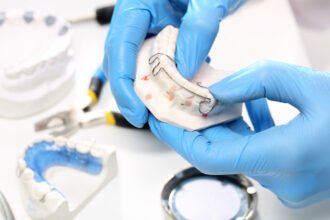(The following is reprinted from the Health Affairs blog)
(The following is reprinted from the Health Affairs blog)
About a year ago, some medical symptoms that I’ve experienced for several years suddenly got worse. Nothing really severe, but I was concerned enough that I wanted to know if this was just a flare-up of a condition I’ve had for quite a while or if it represented a new health problem. I went to specialist I’d seen many times before and described the changes. He sent me for a couple of diagnostic tests, and then scheduled an appointment once he got the results.
He thought I had developed a new chronic disease – let’s call it Condition X. Not a life-threatening condition, but one that certainly affects quality of life and can be progressive. He wanted me to immediately start treatment for this condition, which involved medications and a substantial change in diet.
Being a health services researcher and a physician, I wanted to know more about this diagnosis. So I looked through my medical textbooks, read the latest articles, Googled the condition, and went over the diagnosis and treatment guidelines from specialty societies. After this, I wasn’t at all certain that I really had Condition X, so I scheduled another appointment with my specialist.
“I’m not sure about this diagnosis,” I told him. “Results from the diagnostic tests you recommended are equivocal – right on the border between positive and negative. Also, much of the literature says that these tests aren’t very accurate or meaningful. More importantly, I don’t have the characteristic symptom of Condition X. The guidelines from your professional society say that in order to be diagnosed with Condition X, patients must have this symptom. I don’t have and have never had this characteristic and defining symptom.”
“I know,” the specialist said. “I’m familiar with the literature and the guidelines, and know that you don’t have the main symptom that is characteristic of this condition. However, I’ve seen a lot of patients with Condition X in my years of practice, and I have a sense about who has Condition X. Despite this other information, I think you have Condition X.”
I left my appointment with that specialist and haven’t been back. I felt that if a physician were more confident in his feelings than in the objective evidence, then I didn’t want him treating me. I didn’t start the treatment he recommended. The worsened symptoms which triggered my concerns went away a few weeks later and haven’t returned.
This vignette provides a perspective on the currently controversial subject of comparative effectiveness. Detractors argue that comparative effectiveness will lead to “cookie-cutter medicine,” that all patients will be treated the same based on summarized evidence, and that individuals’ differences will be ignored. My experience suggests the opposite.
When physicians choose to downplay or ignore external objective evidence, they rely instead on internal “subjective evidence” – their experience, feelings, and intuition. Experience-based judgment is a critical tool for the practice of medicine, which requires making decisions under conditions of uncertainty. However, when diagnoses are made based primarily on judgment and beliefs, it becomes easier to ignore evidence contradicting these beliefs, and many patients might be treated in the same manner because they seem to fit in a well-known and familiar category. Thus, ignoring external evidence such as published studies and relying instead on internal beliefs to make diagnoses may be more likely to result in the “cookie cutter medicine” that comparative effectiveness detractors fear.
I don’t think that is how most physicians want to practice medicine, or how the U.S. public wants their physicians to practice. Physicians do need to use their previous experience, judgment, and intuition – ignoring it would be harmful. But ignoring evidence generated by comparative effectiveness, summarizing information from hundreds or thousands of patients, is also harmful.
Perhaps the critics of comparative effectiveness research need to consider the alternatives – do they really want medical decisions made solely on the basis of what their physician feels is correct, or would they prefer that all the information, including a physician’s experience and results from previous research, be used to make the best health care decisions? This should be a rhetorical question, but given the fervent attacks on comparative effectiveness research that often appear today, it is a question that needs to be asked.







